- Home
- Bill James
World War Two Will Not Take Place Page 3
World War Two Will Not Take Place Read online
Page 3
The training warned against lifts, and Mount did not use one now on his way back to the apartment. Lifts made a noise. And, when they reached your floor, and the doors automatically opened, there you were, cosily presented in a well-lit metal box for someone with an automatic. He went quietly and swiftly up the stairs. When he reached the apartment door, he didn’t attempt a subtle, almost silent, use of his key. Training manuals recommended hard against this. No matter how subtle you might be, the enemy inside, if it was an enemy, could be expecting you and alert to the slightest sound. He would deduce from your flagrant delicacy with the lock that you expected trouble and that you were ready for it. Therefore, your enemy would act first, before you could counter. That is, you might be neutralized at once – given no chance to defend yourself. The danger would obviously be greater if the space you wanted to penetrate offered your enemy a cover of darkness – possibly like the apartment – while you were fully illuminated by your background when trying to enter, as Mount might be: this was an expensive apartment block with good amenities, including well-lit corridors. Against this, if you rammed the key in as normal, and shoved the door back heartily as normal, your enemy would think you unprepared and unsuspicious. He might marginally delay. And that could offer the opening to neutralize him. Or, of course, her.
Obviously, this bit of optimism only worked if you had a gun to neutralize him with before he neutralized you with his. But the manual and the training did cover occasions when the officer might have no gun, like Mount now. In such instances, key the door as noisily as you liked and swing it open as forcefully as you liked. But do not, DO NOT, attempt to go through it at this point, nor stand in the opening. Get to the side of the door space immediately, and out of sight from the hallway or room, no target. Perhaps like that you have won a fragment of surprise: he wouldn’t know to which side of the open door you’ve gone. An unarmed-combat jugular chop blow might then be possible when he pushes his head out to see where you are, especially if he chooses to glance the wrong way first. Or she. But even if he – she – doesn’t, you might have a chance, as long as you hit fast and hard, and on exactly the correct patch of neck. This correct patch of neck was, of course, also taught in training.
Mount opened the door wide and stood to its left, his back against the corridor wall. After a while, Toulmin called out in German from the living room: ‘Is that you, Mr Naughton? Come in, do. No need to be shy in your own quarters.’
Mount stepped into the apartment and closed the door behind him. Toulmin was standing in the middle of the living room floor, plump, flushed, russet hair in retreat, fine tailoring, high-grade black shoes. Although he had sounded relaxed and jokey when he shouted just now, Mount felt some of that nervousness radiating from him, as he had occasionally in the past. But, after Mount’s rigmarole with the door, perhaps he radiated nervousness, too. The room seemed pretty well as he had left it, but he sensed a difference, though he couldn’t fix on what. Well, he knew he ought to have been able to fix on what: he was supposed to be a qualified spy, and spies were supposed to notice things.
He went to the kitchen and made coffee. Then he and Toulmin sat in a couple of the birch and metal armchairs. The door to one bedroom off this lounge was closed, the other slightly ajar. They’d been like this when he left for the cinema, hadn’t they? Hadn’t they? Oh, God, he ought to be certain about such details. The doubt showed pathetic slackness. It clashed with his decision to be extra watchful. In spying, you were always watchful. That’s what spying meant. But at times, and quite frequent times, you had to pile on the watchfulness if you wanted to be alive and fit enough and free enough to go on being watchful, and possibly extra watchful, tomorrow.
What was it he feared? What he feared was simple and obvious. He feared what he and all other secret intelligence functionaries always feared: that one of their agents, while still apparently one of their agents, had in reality been turned and now served the other side. It would happen like this: the agent had been detected by a counter-espionage unit and arrested, interviewed, probably tortured, but, instead of getting immediately hanged, shot or garrotted, was forced to help trap someone bigger – the officer-spy he’d previously fed his insights to, such as Mount. If that worked, or if it didn’t, the agent could still be hanged, shot or garrotted, but later: his captors had the penny and the bun.
Suppose this had happened to Toulmin. Had he brought people with him to eavesdrop on their discussion through a part open bedroom door, then make the more important catch – Mr Stanley Charles Naughton, so called? Was the yelled, wordy, formal, agreed, genial greeting from Toulmin meant to tell a reception group to get ready, safety catches off? Naturally, Toulmin would appear tense if he’d been recruited for that kind of plot. Mount saw no rough-house signs on Toulmin’s face or hands. But it would be a basic precaution in this sort of catch-a-spy programme to concentrate interrogation brutalities on parts of the body normally covered by clothes, and to make sure nothing was broken, so that normal walking, talking, hand-shaking remained possibles. The agent could then be presented to the world and his espionage contact as undamaged, and false in only a two-faced way, not the three of a double agent: his normal workaday face; his secret face as an agent informing to an enemy, or potential enemy; his other secret face as an agent in reverse, and now informing against the alien officer-spy who had first recruited him as an informant.
‘I’ve been to the cinema,’ Mount said. He wanted some banal, unincriminating conversation, at least to start with while he went on assessing. This was how a businessman might talk. If he’d been to the cinema he’d say he’d been to the cinema, as explanation for his absence.
‘Ah.’
‘The Blue Angel.’ He was Stanley Charles Naughton, a British businessman, and so spoke in English. Too much fluency in German might be unwise.
‘This is a famous film.’ Toulmin also used English.
‘Marlene Dietrich,’ Mount said.
‘Indeed.’
‘It’s not new, yet it is still very effective.’
‘I concur entirely.’
‘It was the film that brought her to the attention of Hollywood,’ Mount said.
‘From being a German actress, she became an international star.’
‘The first German film with sound.’
‘Her voice – exciting and full of romance. It could be heard in this film, and that gave her additional opportunities to impress,’ Toulmin said. It was as if he, also, wished to limit the conversation to harmless drivel. But that would be useless for an entrapment. He must get Mount to damn himself by talking spy matters. Of course, Mount had gone right through the apartment after his arrival from Templehof; an elementary drill. He struggled to remember how the place had been when he’d left for the cinema. Had he closed a bedroom door and left the other slightly open? The bedroom with the closed door now was the one he slept in. He had put his suitcase in there for unpacking later. His memory would take him no further than this.
‘They made The Blue Angel in German and English,’ Mount said.
‘It contains the famous number ‘Falling in Love Again’. A nightclub singer marries a professor, doesn’t she? Another German film with “blue” in the title is The Blue Light. This was directed by the famous Leni Riefenstahl and concerns mountains, but I have not seen it.’ Abruptly, he turned his head and yelled at the part-open door in German, “Come out now! Now!”’ Both ‘now!’s crackled with urgency, the second more.
At once, Mount stood, to be better able to defend himself. Not much better. Maybe worse: standing, he’d be a bigger target. Toulmin began to laugh very loudly, all stress seemingly gone, the treacherous sod. But in a treacherous trade, cater always for treachery. And Mount had, more or less. It should have been less of the less and more of the more, though.
The bedroom door was tugged fully open from inside and the two girls who had been here with Mount and Toulmin last time came slowly out. It had to be slowly because they carried an armchair between
them, above their heads, both with two hands on it. Getting it and themselves through the door space and under the lintel demanded skilled manoeuvring and adjustments of height. They had all their clothes on. Now and then, despite the effort needed to hold the chair steady, they, too, laughed, but not an outright laugh like Toulmin’s; rather, slightly breathless giggles. The chair matched exactly those Mount and Toulmin were sitting on tonight, and the one that collapsed under the weight and vim of Toulmin and the rounder of the girls, Olga, on that previous visit. It had furls of gift-wrapping here and there on its legs and armrests. They gazed up at the chair with a kind of reverence, as though it were a throne or a dear one’s coffin. The girls did a lumbering dance with it to the spot in the living room where they’d decided it should go, like a burlesqued ballet scene by a couple of liquored stagehands. Now, they lowered the chair to the floor and stood proudly behind it.
‘This is a gift,’ Inge said in German. ‘The three of us have bought it for you. We feared you might be in trouble with the apartment owner because you were one chair short. Or with the head of your business company who rents the apartment for you.’
‘We will not put the chair to such use again,’ Toulmin said. ‘That previous occasion was deeply pleasant, but perhaps a little unwise.’ He spoke German, too, now. ‘Tonight, we will be more civilized, with your permission, Stanley.’ He pointed to the bedrooms in turn. ‘The same couples as before, I think. It would be deeply unromantic, otherwise, and take away some significance from the relationships.’
‘This is true,’ Olga said.
‘You will not object to this sameness, Stanley?’
‘How could I?’ Mount replied.
‘Yes, how could he?’ Inge said. ‘How could any of us?’
‘There are some people who, in this type of situation, would wish for change.’
‘Fortunately, we are not of that kind,’ Olga said.
‘We seek the meaningful,’ Toulmin said.
Mount saw why Toulmin’s chatter had been so safe and ordinary: the girls believed he and Mount were business colleagues, only business colleagues, and the pretence must be nurtured. Mount felt comforted and a little guilty. Toulmin was not a tool of the geheime Staatspolizei – the secret State Police. It seemed offensive now to think he might have been. Perhaps he had come to the apartment during Mount’s absence from Berlin to check the design label on an armchair so they could match it perfectly. Mount didn’t feel happy about that, though Toulmin’s and the girls’ intent was entirely kind and good. And if you gave someone a key to your apartment, perhaps you should expect him to use it.
They had several drinks and danced a little to the gramophone. Mount had bought some Roseland, Carroll Gibbons and Woody Herman records on earlier visits. They did swap partners for some of the numbers, and Olga got a leg up hard into Mount’s crotch for most of the slower, blues-style tunes she danced with him. Perhaps Inge did the same with Toulmin. But interchange went no further than this. Mount thought the girls would regard these dry rubs as simple friendliness, on an international basis, in his case.
It became very late. Mount decided the three should stay the night. He’d regard it as inhospitable to turn them out after such generosity about the chair. As Toulmin had suggested, Inge went to bed with Mount, and Olga with Toulmin, so as to preserve and develop the romantic nature of things, and their meaningfulness.
Next day, Mount got up early, hoping for a chance to talk to Toulmin alone before Inge and Olga awoke. Inge opened an eye as he left the bed and put trousers and a shirt on; then she surrendered to more sleep. Toulmin would have to go to his office at the normal morning time, but the girls probably didn’t start work until evening. Mount made enough scrambled egg for four and a large pot of coffee. He considered eggs sustaining, and scrambling the easiest way to serve them.
While he was having breakfast in the kitchen, Toulmin appeared, already dressed, and asked if he could use Mount’s electric razor. ‘Have something first,’ Mount said, pouring coffee and helping him to food. Toulmin sat opposite. ‘These are girls who greatly help with relaxation and up to date are guaranteed clean,’ he said.
‘Their thoughtfulness concerning the broken chair is remarkable,’ Mount replied.
‘It is very typical of their character.’
‘I need to know about Russia,’ Mount replied as Toulmin ate.
‘Russia? Yes, I thought that might be it,’ he said. They spoke English.
‘You know something of this?’
‘I can see where a curiosity about such matters comes from. You wonder if there might be a future non-aggression treaty between Germany and the USSR – on top of the 1926 Neutrality Agreement?’
Mount wondered why Toulmin was considered only number two of the Berlin agents. ‘My chief wonders. And what my chief wonders, I feel I’d better start wondering about myself.’
‘Your chief is smart. Yes, there have been visitors to the Auswärtiges Amt.’
‘To the Foreign Office. From Moscow?’
‘Not of any great eminence. Not so far. Middle rank.’
‘But you’ve seen or heard about these visitors to the AA? Perhaps clearing the way for other, more important visitors?’ Mount said. ‘Usual diplomatic procedure.’
‘I wasn’t sure you’d be interested, as they weren’t major people. They are not people with power, no real power. They can’t produce any immediate result.’
‘Yes, interested.’
‘I’ll look for more on it, shall I?’
‘Please. I know it might be very delicate.’
‘Yes, delicate,’ Toulmin said. ‘That’s one word for it.’
‘Risky.’
‘Yes, risky. The counter-spy experts from two countries, not just one, will make it so.’
‘We’ll work on arrangements to bring you out of Germany if things become difficult.’
‘Yes, they might become difficult, as well as delicate and risky.’
‘This will be very much in our mind,’ Mount said. Toulmin would never speak about money. Mount had to show he knew the dangers and would see they were properly paid for, and in sterling or dollars, not the chaotic German mark. ‘What about telegrams? Memoranda?’ he said.
‘Yes, some. I don’t see everything, of course.’
‘I think you’re at Level Two for Confidentiality Clearance,’ Mount said.
‘Your index cards are very accurate. Yes, Level Two, and this is strictly applied. We Germans do apply regulations strictly, don’t we? We are laughed at for that. However, I see some telegrams and so on.’
‘And these would be from, and to, what you call “major people”?’
‘State Secretary in the AA. Ambassadors. The Foreign Minister himself. But most of it vague, so far. I didn’t think—’
‘Friendly messages?’
Toulmin had a think about this, maybe unsure of the full implications in English of the word ‘friendly’. He said: ‘Constructive. Forward-looking. Each side suggests there could be even greater amity, greater commercial cooperation. Russia wants armaments from the Czech Skoda works and an “understanding” about her “sphere of influence”. Russia would like to regard that sphere as fairly immense – the Baltic, the Black Sea, the Baltic States, Finland. Obviously, political and ideological differences have to be kicked into touch, as I believe you say. Communists and fascists don’t normally fraternize much. But now, several telegrams from Berlin argue that the real enemies of both National Socialist Germany and the Soviet Union are not each other, but corrupt, imperialistic, aggressive capitalist Western democratic states. AA communications point out that Russia was dragged into the last war against Germany and suffered almost catastrophically for it. Now, says Berlin satirically, Western countries would like Russia to become an ally with them in a new war, also against Germany. Surely, our Foreign Office declares, the Soviet Union cannot really want that.’ Toulmin stood. ‘Now, I must shave, get myself looking presentable and go. This is important in the office. I h
ave to be a model employee. Thus, the good suit, custom-made shoes. Thank you for breakfast. I hired a van to bring the chair. It’s outside.’
‘But Russia’s Foreign Commissar, Litvinov, seems very pro-West. Does he favour this new sweetness towards the Reich?’
‘Ah, Litvinov.’
‘He shows no hostility to Britain. The reverse. Or am I being naive?’
‘I get the feeling from some of these telegrams and from rumour in the office that Litvinov might not be there for much longer. A year? Less? He and Stalin disagree on fundamentals. It’s extremely unprofitable to disagree with Stalin on fundamentals.’
‘On anything.’
‘Molotov will probably take over. Stalin favours him. Both of them suspect the West. Litvinov less so, as you say.’
Mount kept the eggs warm. At about nine thirty both girls got up. Mount had another cup of coffee with them while they took breakfast. ‘He paid most towards the chair,’ Olga said. ‘Sam. He is a good man. I expect you know that.’
‘Yes,’ Mount said.
‘What is his other name?’
‘Toulmin.’
‘Is that a German name?’
‘I think a long time ago his family made clocks,’ Mount replied.
‘And we don’t know your name,’ Inge said. ‘Except for Stanley.’
‘I am in Germany quite often,’ Mount said.
‘You speak German very well.’
‘My work requires it.’
‘But some questions you don’t answer,’ Inge said.
‘Probably this is true of many people,’ Mount replied.

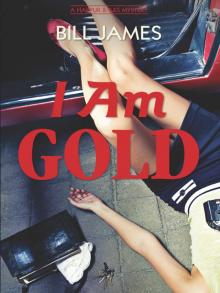 I Am Gold
I Am Gold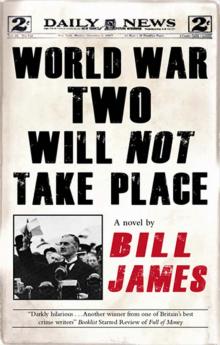 World War Two Will Not Take Place
World War Two Will Not Take Place Pix (Volume Book 24) (Harpur & Iles Mysteries)
Pix (Volume Book 24) (Harpur & Iles Mysteries)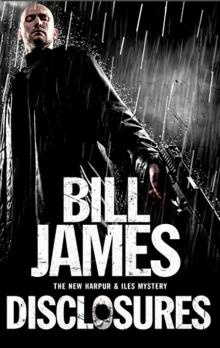 Disclosures
Disclosures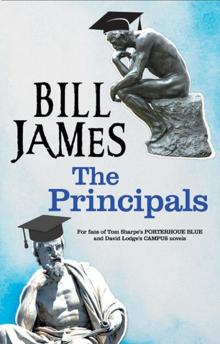 The Principals
The Principals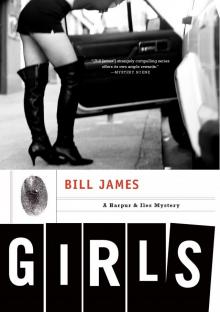 Girls
Girls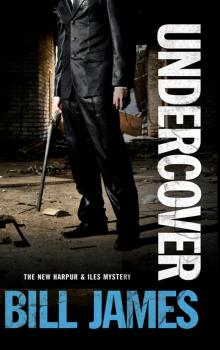 Undercover
Undercover Come Clean (1989)
Come Clean (1989)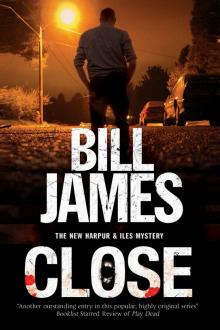 Close
Close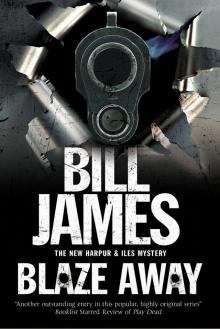 Blaze Away
Blaze Away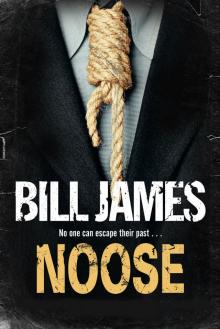 Noose
Noose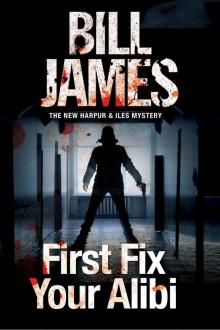 First Fix Your Alibi
First Fix Your Alibi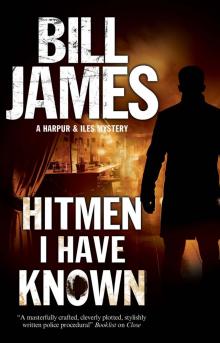 Hitmen I Have Known
Hitmen I Have Known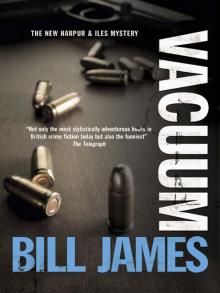 Vacuum
Vacuum Play Dead
Play Dead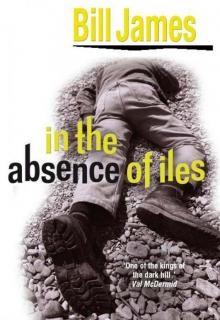 In the Absence of Iles
In the Absence of Iles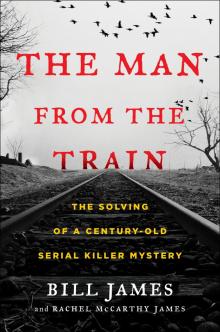 The Man from the Train
The Man from the Train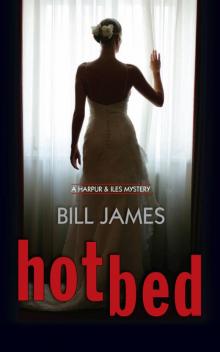 Hotbed
Hotbed Popular Crime
Popular Crime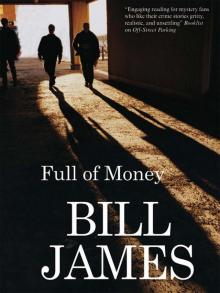 Full of Money
Full of Money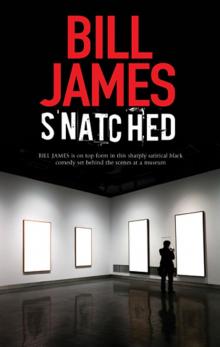 Snatched
Snatched